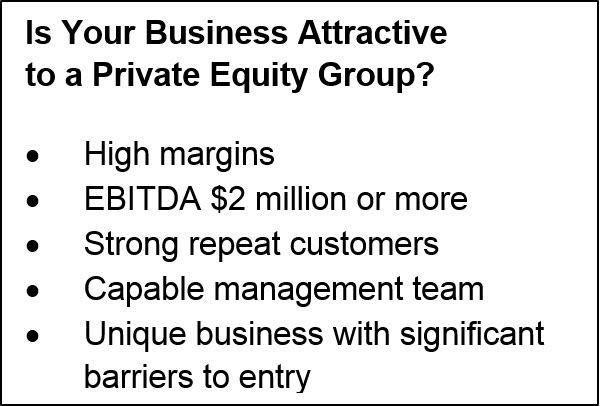What is a Letter of Intent? Part 3 of 3: Stories from the Trenches
 In the second part of this Letter of Intent series, we focused on the structure of an LOI (Letter of Intent).
In the second part of this Letter of Intent series, we focused on the structure of an LOI (Letter of Intent).
As we wrap up this series, we’ll discuss some recent stories “from the trenches” which stopped an LOI from occurring or severely damaged a deal in process.
It’s Too Late Now
Despite the fact that an owner was elderly and dealing with illness, he continued to delay selling the business. With literally weeks left to live, the family finally reached out to move towards a sale.
While this meant we would have to deal with the estate, a more complicated process than dealing with an owner, it was doable…until we found out that no taxes had been paid for nine years.
Even if they wanted to fix this problem, it would mean filing nine years of taxes, which would automatically trigger an audit, which would be even more cost and paperwork, not to mention no buyer would go anywhere near a business or an owner who had managed to evade taxes for so long.
The only probable option left to this family is a sale of the equipment, which wouldn’t even recover 1/20th of what the business could have been worth if they’d done things right in the first place (apart from not waiting until the knock of death to sell).
Killed by Kindness
It’s well known that some kind of employee participation in profit sharing or stock options is a great tool for morale and retention. But, it should never, ever be something done during or near a sale process. In a recent case that we dealt with, the seller blindsided everyone in a meeting by letting all parties know that not only had he recently introduced a 25% profit sharing program, but that he had already paid out the profits for that year under this new scheme.
It hadn’t dawned on the seller that he’d just voted himself a massive reduction not just in the value of the business for sale, but in the amount of profit the buyer could gain, now that the buyer was locked into a program that had precedent with the employees. Surely, the seller’s heart was in the right place, wanting to do right by his employees. But he failed to consult with his own circle of advisors, and even with someone who he’d engaged to help him sell his business, his own broker.
We’ve managed to rescue the sale by making sure there are no new surprises, but this is a kindness that ended up being a great cruelty…and it didn’t have to be that way.
Short-term Thinking
If the business you’re selling is location-based, it’s important to make sure you have favorable lease terms not just for yourself, but contingencies in place for whomever will take over your lease if you ever sell.
The reason is that some landlords have short-term thinking and see a sale as a way to extract concessions and more money from someone (the buyer), who really doesn’t have much of a choice and is already spending a lot of money anyway. They don’t realize that behavior like this ensures that among the first things the new owner does is start looking for a new place to move to once the renegotiated lease is up.
Don’t want to be blindsided by challenges like these?
Having a broker is going to help you avoid many problems, but the way to avoid 99% of problems is to tell your broker everything. He/she can then make sure to guide the deal to a successful conclusion for all.

 In the
In the  You will often hear us state in our blog articles Stephen Covey’s well-known maxim: “Begin with the end in mind.” This very much applies to a Letter of Intent, and it’s one of the most important parts of a business sale.
You will often hear us state in our blog articles Stephen Covey’s well-known maxim: “Begin with the end in mind.” This very much applies to a Letter of Intent, and it’s one of the most important parts of a business sale. Every business sale is a minor miracle. Just as the skydiver gently times his pirouettes and turns in his parachute to land precisely within the giant X of his landing zone, so too do all parties aim at completing what needs to be done from the time an LOI is signed to the date a deal is set to close. Think about all the people involved.
Every business sale is a minor miracle. Just as the skydiver gently times his pirouettes and turns in his parachute to land precisely within the giant X of his landing zone, so too do all parties aim at completing what needs to be done from the time an LOI is signed to the date a deal is set to close. Think about all the people involved. It’s time to start planning and budgeting for 2017 – and that includes tax strategies. While tax planning is one of the more confounding aspects of the business owner’s job, it also presents opportunities for improving your cash flow and profitability.
It’s time to start planning and budgeting for 2017 – and that includes tax strategies. While tax planning is one of the more confounding aspects of the business owner’s job, it also presents opportunities for improving your cash flow and profitability. Are you looking to sell your business but hesitating to sign an agreement with a business broker?
Are you looking to sell your business but hesitating to sign an agreement with a business broker? 2.Your Social Security payments will suffer.
2.Your Social Security payments will suffer.  That scenario sets you up for two paydays – one at the initial sale and another after you’ve grown and the private equity group either sells the business again or buys you out at a much higher value!
That scenario sets you up for two paydays – one at the initial sale and another after you’ve grown and the private equity group either sells the business again or buys you out at a much higher value! Post by Business Broker
Post by Business Broker  1.Exaggerating expenses. Are you using your business as a piggy bank? We often see business owners writing off their family trips as a business expense. That’s one way to fund a trip you can’t afford and get a tax write-off, too.
1.Exaggerating expenses. Are you using your business as a piggy bank? We often see business owners writing off their family trips as a business expense. That’s one way to fund a trip you can’t afford and get a tax write-off, too. 3.Concentrating on only a few customers. Having a large customer or two can give you a great short-term advantage, but it also presents a huge risk for a buyer. You may be allowing one or two customers to overly influence your business decisions.
3.Concentrating on only a few customers. Having a large customer or two can give you a great short-term advantage, but it also presents a huge risk for a buyer. You may be allowing one or two customers to overly influence your business decisions.